A tale of rhynes and reens in the South West corner: Part three in a botanical tale of exploring natural variation around us
July 21, 2021
This post is written by Kellie Smith. See her previous posts about the great duckweed hunt here. The next exciting stop off point on our duckweed tour is the South West. In this case, the South West region refers to the ridge between Wales and England – Bristol, on the English side and Newport, on …
Duckweed hunting in the South West: Part two in a botanical tale of exploring natural variation around us
July 7, 2021
This post is written by Kellie Smith I introduced the great duckweed hunt in my previous blog starting on the South East coast. The quest takes me this week to the other end of the South, the South west corner, particularly St Austell and the Cornwall region. It turns out Cornwall is quite far! Why …
The great duckweed hunt! Part one in a botanical tale of exploring natural variation around us
July 5, 2021
This post is written by Kellie Smith. Welcome to our new series, showcasing duckweed! We have written about duckweed before, but these posts showcase PhD candidate Kellie Smith’s fieldwork hunting duckweed around the UK. Kellie is an avid duckweed collector and researcher in Food and Agriculture at the University of Nottingham. She is passionate about …
The growing power of the rhizotrons! – An interview with Dr Jonathan Atkinson
April 30, 2021
Dr Jonathan Atkinson is a Senior Research Fellow, Technologist in Phenomics, and co-founder of the Future Food Beacon’s Makerspace. He stars in our new video Future Food: an introduction to the Makerspace, which we highly recommend that you watch! In this blog, we ask why and how Dr Atkinson designed and built his largest creations …
The Baobab Genome Project: approaching the mysteries of diversification and death – by Levi Yant
March 15, 2021
With its unmistakeable shape synonymous with the continent, the baobab is an African icon. It is also important on a very practical level: its nutritious fruit, pulp and seeds have been eaten across Africa for ages. High in vitamin C and other nutrients, the use of baobab in the global diet is radically increasing, with …
How does rice reproduce when it’s hot? – An interview with Maureen Ng’ang’a
January 29, 2021
Maureen Ng’ang’a is a second-year PhD student on the UoN-Rothamsted Graduate Centre for International Agriculture scheme. Her project is entitled ‘TempR: Developing reproductive resilience to heat stress in rice’. Her supervisors are: Dr. Sigrid Heuer (RRes), Prof. Zoe Wilson (UoN) and Prof. Erik Murchie (UoN). Why did you decide to do a PhD? What were …
Bees and neonicotinoids – what does the science say? – by Prof. David E. Salt
January 13, 2021
Photo by Roberto Patti on Unsplash DEFRA has announced that, for the 2021 growing season, thiamethoxam will be allowed to treat sugar beet seeds, prior to planting. This is a temporary authorisation for 2021 only but may be extended for the 2022 & 2023 growing seasons. This has understandably caused controversy and elicited passionate reactions. …
From China to the UK during the pandemic – An interview with Dr Yiqun Gao
January 8, 2021
Dr Yiqun Gao is based at the Shanghai Institutes for Biological Sciences. He is a Newton International Fellow at The Future Food Beacon and we are grateful to him for travelling to the UK to take up his Fellowship on 1st November 2020, right in the middle of the UK’s ongoing Covid-19 pandemic! His brave decision …
Improving Brassica rapa for better nutrition – An interview with Dr Guillermina Mendiondo
December 7, 2020
Dr Guillermina Mendiondo is an Assistant Professor in Translational Crop Science at The University of Nottingham. She works on different plant species as part of her work on crop molecular genetics within the Future Food Beacon. The origins of the project In 2018, Dr Mendiondo travelled to South Africa and visited farmers in KwaZulu-Natal as …
Chasing auxin through the plant – international collaboration leads to Nature paper – by Anthony Bishopp
November 23, 2020
Photo (right) by Rita Astrovich on Unsplash Anthony Bishopp is a Royal Society University Research Fellow, Faculty of Science, University of Nottingham When Charles Darwin noticed that plants bend towards light, he performed a series of experiments showing that a mobile signal produced in the growing tip caused the plants to bend at the base. 160 years …

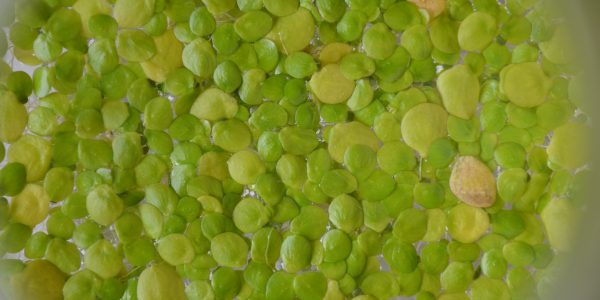
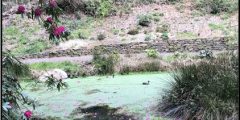
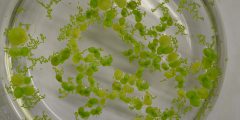
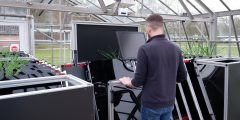
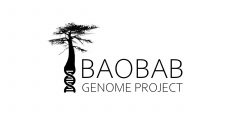
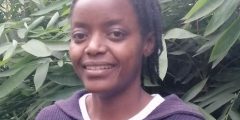
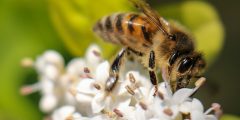


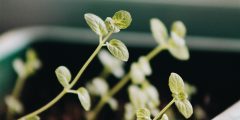
Recent Comments